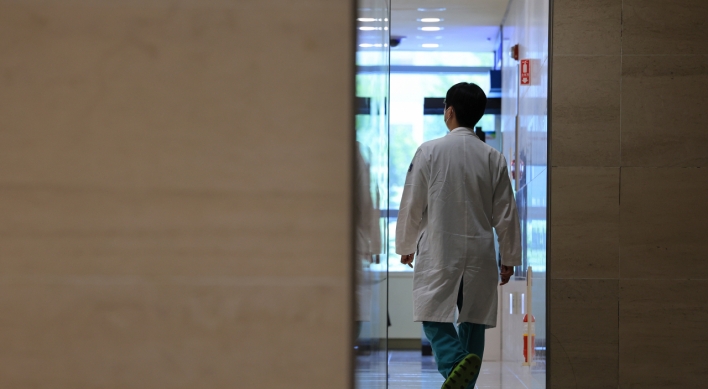WASHINGTON (AFP) ― The failure of foreign intelligence to detect Kim Jong-il’s death shows just how little is known about nuclear-armed North Korea, but moves by the outside world to gain influence are also fraught with risk.
All countries including China, North Korea’s primary ally, appeared to have been in the dark until a tearful television presenter made the announcement on Monday, two days after the 69-year-old Dear Leader was said to have died.
North Korea’s neighbors and the United States, which is treaty-bound to defend South Korea and Japan, are watching warily as the impoverished, isolated and heavily armed nation comes under the rule of his young son Kim Jong-Un.
Victor Cha, who was a top adviser on Korea to former president George W. Bush, said that virtually nothing was known about Kim Jong-un and that any U.S. effort to reach out to him came with the risk of undermining him.
“It’s like a fishbowl. We’re all kind of looking in and we’re trying to figure out how things are happening,” he said.
“But no one dares stick their finger in there because you have no idea what it’s going to create,” said Cha, now a scholar at the Center for Strategic and International Studies and Georgetown University.
Just as Kim’s death was announced, President Barack Obama’s administration was finalizing details on potential food aid to North Korea, part of a strategy of keeping low-level ties with a regime in hopes of avoiding a worse crisis.
Jack Pritchard, a former U.S. negotiator with North Korea, said that the most urgent priority should be contingency planning as he believed there was a high chance that North Korea’s system will collapse.
Pritchard expected initial calm, but doubted that the North’s all-powerful military would respect the young Kim, even if he is officially a four-star general. Pritchard said the late Kim was aware of the problem and hence tried to elevate the role of his Workers’ Party, but with uncertain results.
“The idea that Kim Jong-un is going to come in with a new slogan and say ‘Military, Second!’ is probably not going to go over well,” said Pritchard, the president of the Washington-based Korea Economic Institute.
The military “will become the dominant force, at the forefront or certainly behind pulling the strings, of ― for a short period of time ― the face of North Korea, a chubby 28-year-old,” Pritchard said.
But Pritchard said the United States should at least try to seek smoother relations through efforts such as food aid. He said the United States could also restart joint searches with North Korea for the remains of U.S. dead from the Korean War, after the two countries reached a framework in October.
The Obama administration has been cautious in its approach. Secretary of State Hillary Clinton has consulted North Korea’s neighbors and asked the younger Kim to embrace the “path of peace” in a careful statement that avoided direct condolences.
State Department spokeswoman Victoria Nuland said that the United States cannot decide on food aid “until we can have some more engagement, which we don’t anticipate being able to do until after the New Year.”
Some lawmakers of the rival Republican Party oppose food aid, saying Obama should make regime change his goal and avoid any steps that could stabilize Kim Jong-un’s rule.
All countries including China, North Korea’s primary ally, appeared to have been in the dark until a tearful television presenter made the announcement on Monday, two days after the 69-year-old Dear Leader was said to have died.
North Korea’s neighbors and the United States, which is treaty-bound to defend South Korea and Japan, are watching warily as the impoverished, isolated and heavily armed nation comes under the rule of his young son Kim Jong-Un.
Victor Cha, who was a top adviser on Korea to former president George W. Bush, said that virtually nothing was known about Kim Jong-un and that any U.S. effort to reach out to him came with the risk of undermining him.
“It’s like a fishbowl. We’re all kind of looking in and we’re trying to figure out how things are happening,” he said.
“But no one dares stick their finger in there because you have no idea what it’s going to create,” said Cha, now a scholar at the Center for Strategic and International Studies and Georgetown University.
Just as Kim’s death was announced, President Barack Obama’s administration was finalizing details on potential food aid to North Korea, part of a strategy of keeping low-level ties with a regime in hopes of avoiding a worse crisis.
Jack Pritchard, a former U.S. negotiator with North Korea, said that the most urgent priority should be contingency planning as he believed there was a high chance that North Korea’s system will collapse.
Pritchard expected initial calm, but doubted that the North’s all-powerful military would respect the young Kim, even if he is officially a four-star general. Pritchard said the late Kim was aware of the problem and hence tried to elevate the role of his Workers’ Party, but with uncertain results.
“The idea that Kim Jong-un is going to come in with a new slogan and say ‘Military, Second!’ is probably not going to go over well,” said Pritchard, the president of the Washington-based Korea Economic Institute.
The military “will become the dominant force, at the forefront or certainly behind pulling the strings, of ― for a short period of time ― the face of North Korea, a chubby 28-year-old,” Pritchard said.
But Pritchard said the United States should at least try to seek smoother relations through efforts such as food aid. He said the United States could also restart joint searches with North Korea for the remains of U.S. dead from the Korean War, after the two countries reached a framework in October.
The Obama administration has been cautious in its approach. Secretary of State Hillary Clinton has consulted North Korea’s neighbors and asked the younger Kim to embrace the “path of peace” in a careful statement that avoided direct condolences.
State Department spokeswoman Victoria Nuland said that the United States cannot decide on food aid “until we can have some more engagement, which we don’t anticipate being able to do until after the New Year.”
Some lawmakers of the rival Republican Party oppose food aid, saying Obama should make regime change his goal and avoid any steps that could stabilize Kim Jong-un’s rule.
-
Articles by Korea Herald









![[Kim Seong-kon] Democracy and the future of South Korea](http://res.heraldm.com/phpwas/restmb_idxmake.php?idx=644&simg=/content/image/2024/04/16/20240416050802_0.jpg&u=)










![[Today’s K-pop] Zico drops snippet of collaboration with Jennie](http://res.heraldm.com/phpwas/restmb_idxmake.php?idx=642&simg=/content/image/2024/04/18/20240418050702_0.jpg&u=)